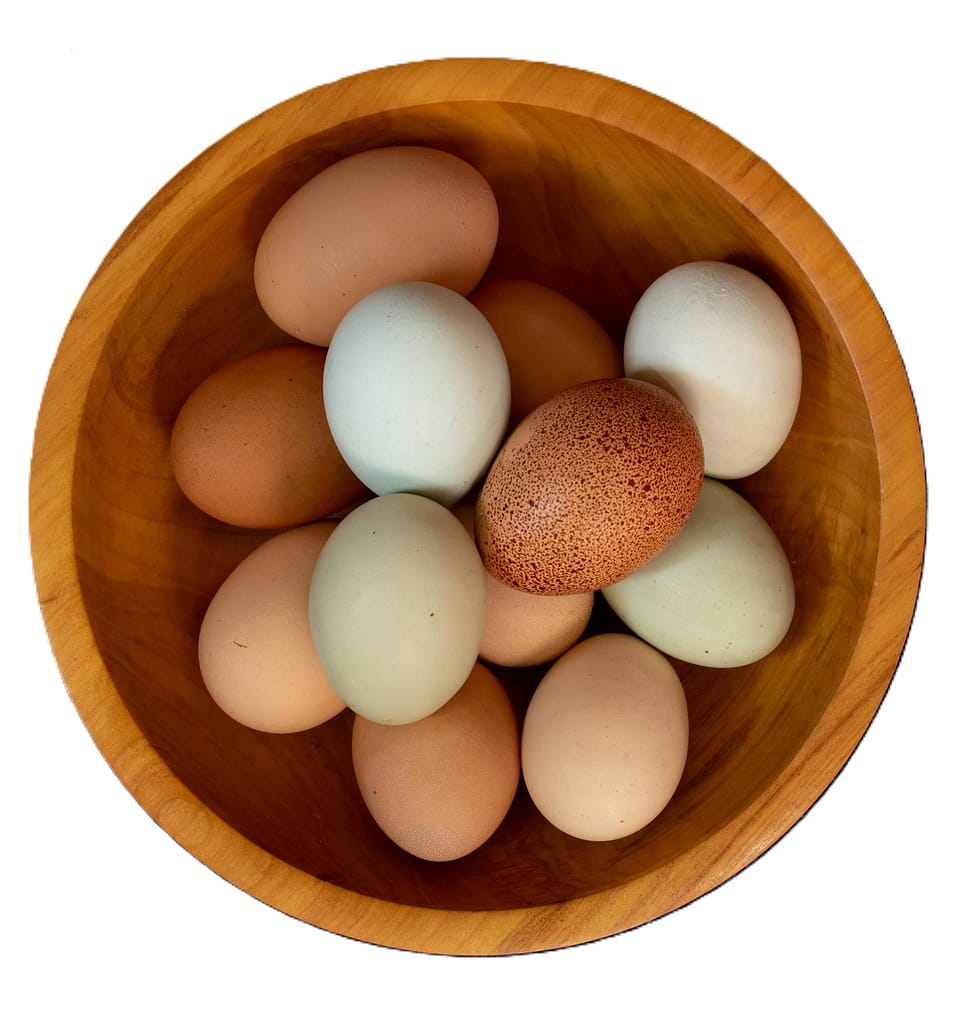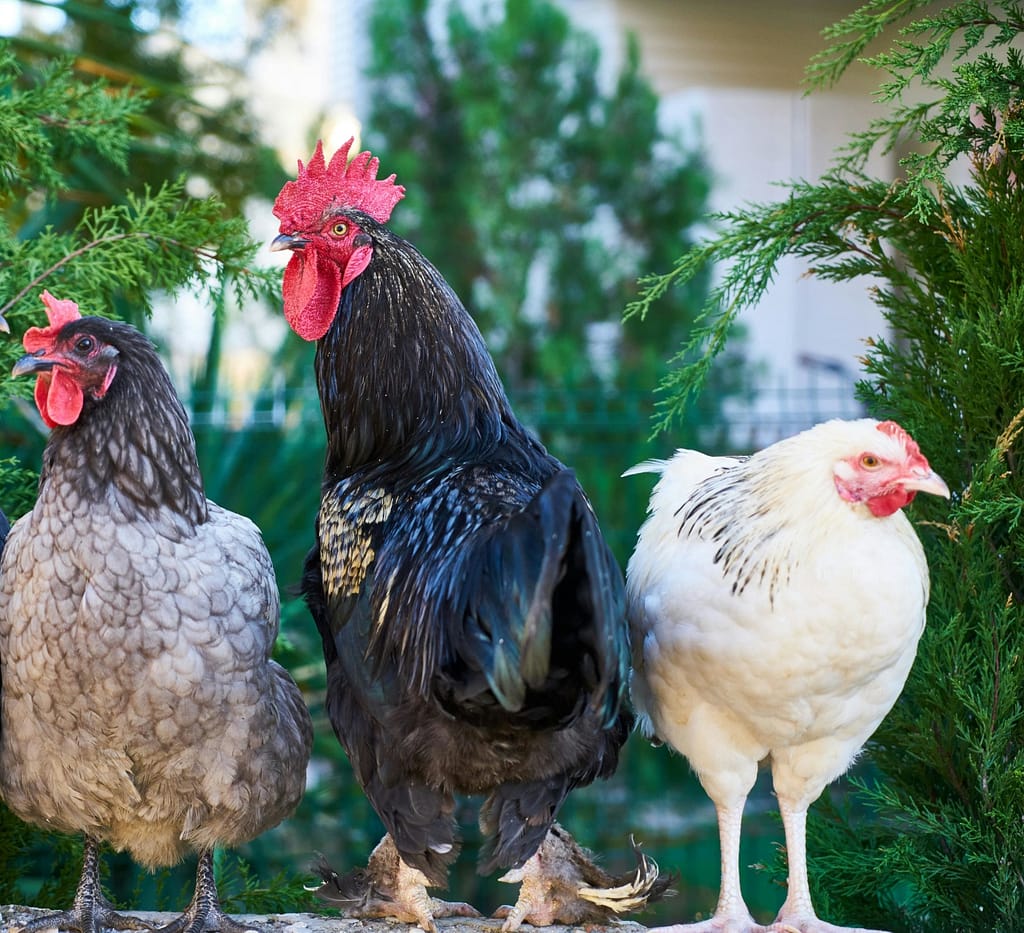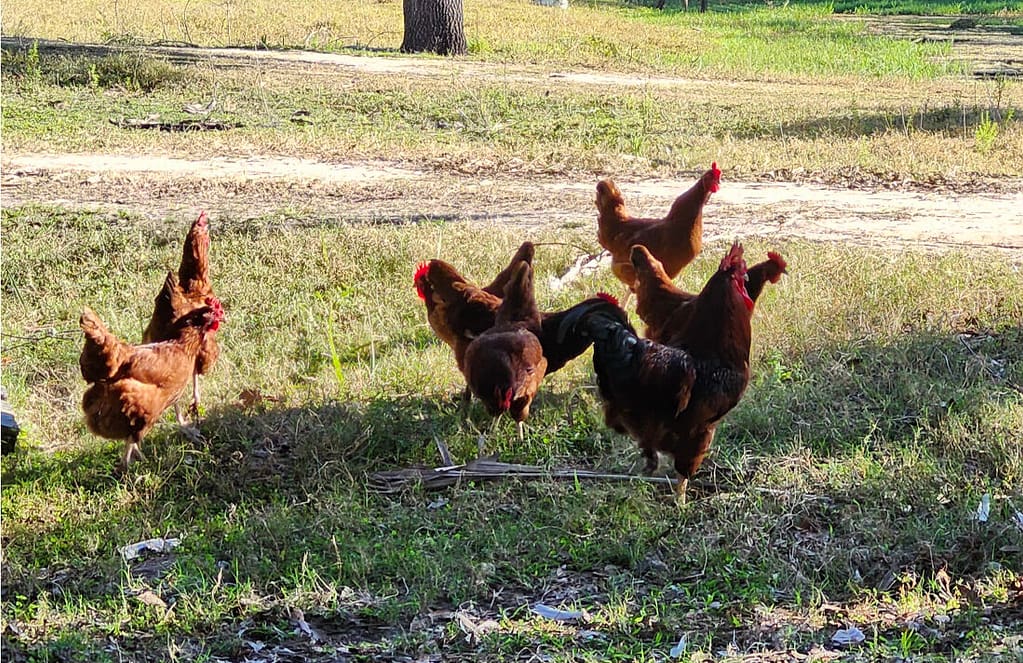
The Benefits of Raising Backyard Chickens: Fresh Eggs, Pest Control, and Companionship
Raising backyard chickens has become increasingly popular among urban and suburban dwellers alike, and for good reason. Beyond the joy of connecting with nature, keeping chickens offers a host of practical benefits that enhance both your lifestyle and the environment. Here’s an introduction to the rewarding aspects of raising backyard chickens.
Fresh Eggs
One of the most obvious and rewarding benefits of keeping chickens is the daily supply of fresh eggs. There’s nothing quite like collecting warm eggs from your own coop each morning. Fresh eggs from backyard chickens are not only delicious but also nutritionally superior, often richer in vitamins, omega-3 fatty acids, and antioxidants compared to store-bought eggs. Plus, you have control over how your chickens are raised and fed, ensuring high-quality eggs for your family’s table.
Pest Control
Chickens are natural foragers and excellent at pest control. They love to hunt and peck for insects, larvae, ticks, and even small rodents. By allowing chickens to roam your yard (under supervision), you can significantly reduce pests naturally without relying on chemical pesticides. This natural pest control not only benefits your garden but also contributes to a healthier, more sustainable ecosystem around your home.
Companionship and Entertainment
Chickens have distinct personalities and can be surprisingly entertaining and endearing pets. Many chicken keepers enjoy observing their flock’s social interactions, unique behaviors, and funny antics. Whether it’s watching them dust-bathe, chase each other around, or simply cluck contentedly, chickens provide a source of companionship and relaxation that can be therapeutic in today’s fast-paced world.
Educational Opportunities
Raising chickens offers valuable educational opportunities for children and adults alike. It teaches responsibility, compassion, and the basics of animal care. Children can learn about the life cycle of chickens, the importance of nutrition, and even the basics of genetics through breeding programs. Many schools and community programs incorporate chicken keeping into their curriculum to promote hands-on learning and environmental stewardship.
Sustainability
By raising your own chickens, you contribute to a more sustainable lifestyle. You reduce your carbon footprint by decreasing the transportation and packaging associated with store-bought eggs. Additionally, chicken droppings make excellent fertilizer for gardens, enriching the soil with nutrients and improving plant growth. This closed-loop system of raising chickens, using their waste as fertilizer, and growing food creates a sustainable cycle that benefits both your family and the environment.

Choosing the Right Chicken Breed: A Guide to Popular Options
Selecting the right chicken breed is essential for achieving your goals, whether you’re interested in egg production, meat, or simply enjoying their company in your backyard. With numerous breeds available, each with its own characteristics and strengths, here’s an overview to help you choose the perfect chickens for your needs.
Popular Breeds for Beginners
1. Plymouth Rock:
- Characteristics: Dual-purpose breed with good egg production and meat quality.
- Temperament: Gentle and easy to handle, suitable for families.
- Egg Production: Around 200-250 eggs annually (brown eggs).
2. Australorp:
- Characteristics: Excellent egg layers with consistent production throughout the year.
- Temperament: Calm and docile, making them great for backyard environments.
- Egg Production: Up to 250 eggs per year (brown eggs).
3. Orpington:
- Characteristics: Dual-purpose breed known for both eggs and meat.
- Temperament: Gentle and affectionate, making them popular in family settings.
- Egg Production: Around 180-200 eggs per year (brown eggs).
Breeds Known for Egg Production
1. Leghorn:
- Characteristics: Prolific layers of large white eggs.
- Temperament: Active and independent; best suited for experienced chicken keepers.
- Egg Production: Approximately 280-320 eggs annually.
2. Rhode Island Red:
- Characteristics: Hardy, dual-purposed breed known for excellent egg production (brown eggs).
- Temperament: Friendly and adaptable, making them ideal for beginners.
- Egg Production: Approximately 250-300 eggs per year.
Breeds Focused on Meat Production
1. Cornish Cross:
- Characteristics: Specifically bred for rapid growth and meat production.
- Temperament: Calm but less active due to their size.
- Meat Quality: Excellent meat yield, reaching market weight quickly.
2. Jersey Giant:
- Characteristics: Large dual-purpose breed with good meat production potential.
- Temperament: Gentle giants, suitable for free-ranging environments.
- Meat Quality: Considered a premium table bird with flavorful meat.
Dual-Purpose Breeds
1. Sussex:
- Characteristics: Versatile breed known for both egg production and meat quality.
- Temperament: Docile and friendly, suitable for beginners.
- Egg Production: Approximately 200-250 eggs per year (brown eggs).
2. Wyandotte:
- Characteristics: Dual-purpose breed with a striking appearance and good egg-laying capabilities.
- Temperament: Curious and hardy, adapts well to various climates.
- Egg Production: Around 200-250 eggs annually (brown eggs).

Setting Up Your Chicken Coop
Setting up a chicken coop for raising backyard chickens is a crucial step toward providing a safe and comfortable home for your backyard flock. Whether you’re a novice or an experienced chicken keeper, understanding the essentials of coop design, features, and maintenance will ensure a thriving environment for your chickens. Here’s a detailed guide to help you get started:
Coop Design Basics
1. Size and Space:
- Rule of Thumb: Allow at least 2-4 square feet of floor space per chicken inside the coop, and 8-10 square feet per chicken in the outdoor run area.
- Considerations: Adequate space prevents overcrowding, reduces stress, and minimizes aggressive behavior.
2. Ventilation:
- Importance: Proper airflow prevents moisture buildup and ammonia levels, crucial for respiratory health.
- Design Tip: Install vents near the roofline to allow warm, moist air to escape while keeping drafts minimal.
3. Roosting Bars:
- Purpose: Chickens naturally roost at night to sleep comfortably and feel secure.
- Placement: Install roosting bars higher than nesting boxes, with 8-12 inches per chicken of roosting space.
4. Nesting Boxes:
- Function: Provide private, quiet spaces for hens to lay eggs comfortably.
- Size: Aim for one nesting box per 3-4 hens, each box measuring about 12×12 inches and filled with clean bedding like straw or shavings.
Essential Features
1. Secure Fencing:
- Purpose: Protects chickens from predators such as foxes, raccoons, and birds of prey.
- Materials: Use sturdy wire mesh with small openings (1/2 inch or less) buried at least 12 inches deep to deter digging predators.
2. Flooring and Bedding:
- Flooring: Opt for easy-to-clean materials like plywood or concrete covered with a layer of absorbent bedding.
- Bedding: Use materials such as pine shavings, straw, or shredded paper changed regularly to maintain cleanliness and control odor.
3. Lighting:
- Natural Light: Position coops to maximize natural sunlight exposure, aiding in egg production and vitamin D synthesis.
- Artificial Lighting: Consider supplemental lighting (14-16 hours/day) during winter months to maintain egg production.
Maintenance Tips
1. Regular Cleaning:
- Schedule: Clean out bedding and nesting boxes weekly, and sanitize the coop quarterly to prevent disease and odor buildup.
- Tools: Use a shovel, rake, and stiff brush for cleaning, and consider using poultry-safe disinfectants.
2. Pest Control:
- Prevention: Regularly inspect for signs of pests like mites, lice, and rodents.
- Treatment: Use natural remedies or poultry-safe products for pest control to avoid harmful chemicals.
3. Structural Checks:
- Routine Inspections: Monitor for wear and tear, especially after extreme weather conditions, and repair promptly to maintain structural integrity.

Feeding and Nutrition For Raising Backyard Chickens
Providing proper nutrition is essential for the health, productivity, and well-being of your backyard chickens. Understanding their dietary needs, establishing a feeding schedule, and knowing when and how to supplement their diet are key aspects of responsible chicken care. Here’s a detailed guide to help you ensure your flock receives optimal nutrition:
Chicken Diets: Understanding Nutritional Needs for Raising Backyard Chickens
1. Starter Feed (Chicks):
- Purpose: High protein content (18-20%) to support rapid growth and development.
- Usage: Feed from hatching up to 6-8 weeks of age, or until chickens are fully feathered and can transition to grower feed.
2. Grower Feed:
- Purpose: Balanced nutrition (16-18% protein) to support steady growth and development without excess weight gain.
- Usage: From 6-8 weeks until birds are ready to start laying eggs (around 18-20 weeks).
3. Layer Feed:
- Purpose: Higher calcium content (16-18%) to support eggshell formation and overall egg production.
- Usage: Introduce layer feed when hens begin laying eggs (around 18-20 weeks) until they stop laying.
4. Broiler Feed:
- Purpose: High protein content (20-24%) for rapid muscle growth and meat production in broiler chickens.
- Usage: From hatch to market weight (typically 6-8 weeks), depending on breed and growth rate.
Feeding Schedule for Raising Backyard Chickens
1. Regular Feeding Times:
- Consistency: Provide feed at the same times each day to establish a routine.
- Ad libitum: Allow chickens access to feed throughout the day, ensuring they have enough to eat without overconsumption.
2. Monitoring Consumption:
- Observation: Monitor feed consumption to ensure chickens are eating enough but not too much, adjusting portions as needed based on flock size and appetite.
3. Water Access:
- Availability: Ensure fresh, clean water is available at all times, especially during hot weather or periods of high egg production.
Supplement Recommendations
1. Calcium Supplements:
- Purpose: Essential for eggshell formation in laying hens.
- Sources: Provide oyster shells or crushed eggshells in a separate feeder for hens to access as needed.
2. Grit:
- Purpose: Helps chickens grind food in their gizzards for proper digestion.
- Types: Offer insoluble grit (small stones or commercial grit) free-choice, particularly for chickens not free-ranging.
3. Treats and Scraps:
- Moderation: Offer treats such as fruits, vegetables, and grains sparingly, ensuring they complement rather than replace balanced feed.

Ensuring the Health and Wellness of Chickens: Common Issues and Preventive Care
Maintaining the health and wellness of your backyard chickens is paramount to their happiness and productivity. Understanding common health issues, implementing preventive measures, and practicing good management are key to ensuring a thriving flock. Here’s a comprehensive guide to help you keep your chickens healthy:
Common Health Issues When Raising Backyard Chickens
1. Respiratory Problems:
- Symptoms: Wheezing, coughing, nasal discharge.
- Causes: Poor ventilation, damp bedding, or exposure to drafts.
- Prevention: Ensure adequate coop ventilation, maintain dry bedding, and avoid overcrowding.
2. Parasitic Infestations:
- Symptoms: Lethargy, feather loss, visible parasites (lice, mites).
- Causes: Poor coop hygiene, and exposure to wild birds or rodents.
- Prevention: Regularly clean and sanitize the coop, provide dust baths with diatomaceous earth, and monitor for signs of infestation.
3. Egg-related Issues:
- Symptoms: Soft or misshapen eggs, egg binding.
- Causes: Calcium deficiency, stress, or genetic factors.
- Prevention: Ensure hens have access to calcium supplements (like oyster shells), maintain a stress-free environment, and provide adequate nesting boxes with clean bedding.
4. Digestive Disorders:
- Symptoms: Diarrhea, loss of appetite, lethargy.
- Causes: Poor diet, sudden diet changes, or bacterial infections.
- Prevention: Feed a balanced diet appropriate for the chicken’s age and purpose, avoid sudden dietary changes, and maintain clean feeding and watering equipment.
Preventive Measures for Raising Backyard Chickens
1. Biosecurity:
- Practice: Limit exposure to wild birds, rodents, and visitors who have contact with other poultry.
- Quarantine: Introduce new chickens to the flock only after a quarantine period to monitor for signs of illness.
2. Cleanliness and Hygiene:
- Coop Maintenance: Regularly clean and disinfect the coop, remove soiled bedding promptly, and provide clean water and feed.
3. Nutritional Balance:
- Feed Quality: Offer a balanced diet with appropriate protein levels and access to fresh water at all times.
- Supplements: Provide supplements such as grit, calcium, and vitamins as needed to support overall health.
Tips for Maintaining a Healthy Flock
1. Regular Health Checks:
- Observation: Monitor chickens daily for any changes in behavior, appetite, or appearance.
- Early Detection: Address potential health issues promptly to prevent them from worsening.
2. Veterinarian Consultation:
- Expert Advice: Consult with a poultry veterinarian for regular check-ups, vaccinations, and guidance on health management.
3. Stress Management:
- Minimize Stress: Provide a calm and predator-safe environment, avoid overcrowding, and handle chickens gently.
First Aid Kit for Raising Backyard Chickens
Purpose: Be prepared for minor injuries or health issues with a well-stocked first aid kit.
Essentials:
- Antiseptic Spray or Solution
- Bandages and Gauze
- Scissors and Tweezers
- Veterinary Contact Information
Tip: Regularly check and replace expired items in your first aid kit to ensure readiness.

Daily Care Routine for Raising Backyard Chickens
Establishing a daily care routine is essential for maintaining the health, happiness, and productivity for raising backyard chickens. By following a consistent schedule and implementing best practices, you can ensure that your flock thrives. Here’s a comprehensive guide to daily chicken care, including a checklist and tips for optimal management:
Daily Care Checklist for Raising Backyard Chickens
1. Morning Routine:
- Check Food and Water: Ensure feeders and waterers are clean, and filled with fresh feed and water.
- Observation: Monitor chickens for any signs of illness or injury during morning feeding.
2. Coop Maintenance:
- Remove Soiled Bedding: Clean out droppings and soiled bedding from the coop floor and nesting boxes.
- Ventilation Check: Ensure adequate ventilation in the coop to prevent moisture buildup and respiratory issues.
- Inspect Roosts and Nesting Boxes: Check roosting bars for cleanliness and stability. Ensure nesting boxes have clean bedding.
3. Outdoor Area:
- Inspect Fencing: Check perimeter fencing for any signs of damage or potential entry points for predators.
- Free-Range Time: If chickens are allowed to free-range, supervise their activities to ensure safety and monitor foraging behavior.
4. Health Check:
- Visual Inspection: Look over each chicken for signs of injury, parasites, or abnormalities in posture and behavior.
- Feather Condition: Check feathers for lice or mite infestations, and treat them as needed.
- Egg Binding: Monitor hens for signs of egg binding, such as lethargy or straining.
5. Evening Routine:
- Secure Coop: Close coop doors and secure latches to protect chickens from predators overnight.
- Collect Eggs: Gather eggs from nesting boxes, handling them gently to avoid breakage.
- Final Check: Ensure all chickens are accounted for and settled on roosts or in nesting boxes.
Best Practices for Daily Chicken Care
1. Cleanliness is Key:
- Coop Hygiene: Regularly clean and disinfect the coop to prevent disease and maintain a healthy environment.
- Bedding Management: Replace bedding in nesting boxes and coop floor as needed to keep chickens clean and comfortable.
2. Balanced Nutrition:
- Quality Feed: Provide a balanced diet appropriate for their age and purpose, supplemented with grit, calcium, and vitamins as necessary.
- Fresh Water: Ensure chickens have access to clean, fresh water at all times, especially during hot weather or periods of high egg production.
3. Observation and Monitoring:
- Early Detection: Monitor chickens daily for any changes in behavior, appetite, or egg production that may indicate health issues.
- Prompt Action: Address any concerns promptly, including seeking veterinary advice when necessary.
4. Predator Prevention:
- Secure Environment: Implement measures to deter predators, such as secure fencing, predator-proof coop design, and regular checks for signs of intrusion.
Conclusion
Raising backyard chickens offers numerous benefits beyond just fresh eggs, including natural pest control, companionship, and educational opportunities, contributing to a healthier, more sustainable lifestyle. Effective chicken care involves preventive health measures, biosecurity, cleanliness, and a balanced diet to ensure a resilient flock. Proper feeding tailored to different life stages is essential for their health and productivity. Setting up a well-designed coop with adequate space, ventilation, and security is crucial for their well-being. Choosing the right breed depends on priorities like egg production or meat quality, and adhering to a daily care routine fosters a strong bond and a thriving environment for the chickens.